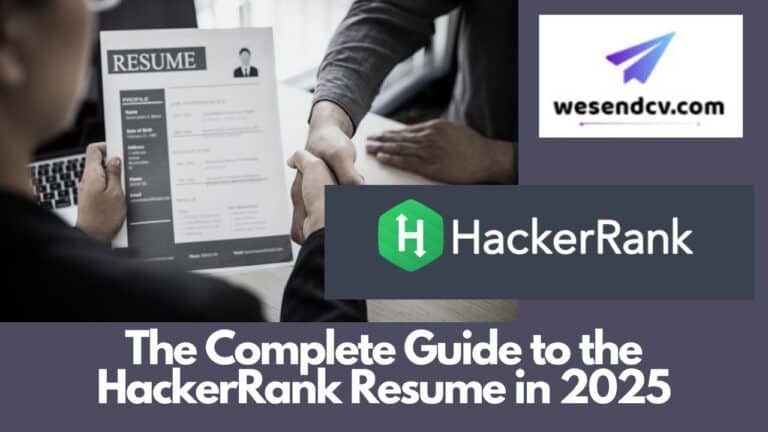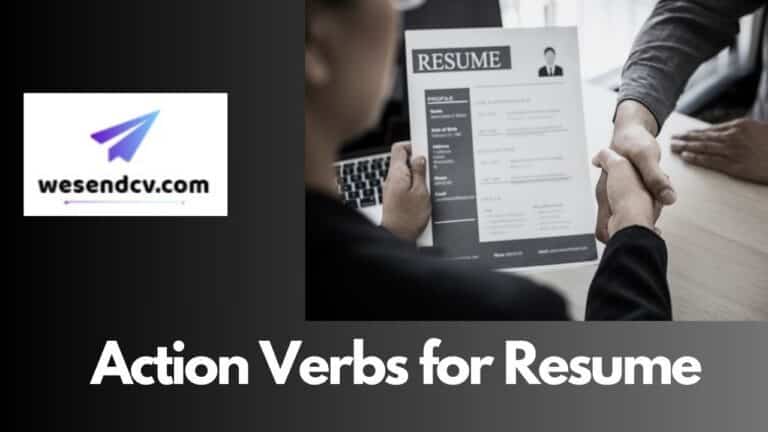In 2025, the competition for top jobs has never been fiercer, and where you post your resume could make all the difference in landing the right opportunity. With a multitude of job boards available, it’s essential to understand which platforms give you the best results for your efforts.
In this article, we compare the top job boards of 2025, exploring their strengths and weaknesses, and helping you figure out the best platforms to post your resume for optimal visibility and success.
Main Highlights of Content
Toggle1. LinkedIn: The Networking Giant
Pros:
- Massive Professional Network: With over 900 million users, LinkedIn continues to be the go-to platform for professional networking and job hunting.
- Profile as a Resume: LinkedIn allows you to upload your resume but also serves as an interactive version of your CV. Recruiters can easily find you through your LinkedIn profile.
- Job Search Features: LinkedIn offers both active job searching and passive opportunities through networking.
- Personal Branding: Your LinkedIn profile allows you to build a personal brand by sharing articles, posting updates, and engaging with professionals in your field.
Cons:
- Competitive: Due to its popularity, LinkedIn can be highly competitive, especially for top-tier positions.
- Limited Free Features: LinkedIn Premium offers more advanced tools, but the free version has limitations.
Best For: Mid-to-senior level professionals, people in tech, marketing, sales, and any industry requiring networking.
Pro Tip: Regularly update your profile, share posts, and engage with relevant industry content to improve visibility.
2. Indeed: The Job Search Powerhouse
Pros:
- Wide Range of Job Listings: Indeed is the largest job board in the world, with millions of listings across every industry and job level.
- Free to Use: Anyone can post their resume for free and apply to jobs with just a few clicks.
- Job Alerts: Indeed’s job alert feature makes it easy to get updates when new jobs matching your criteria are posted.
- Employer Reviews: Applicants can see company ratings and reviews from current and former employees, giving insight into company culture.
Cons:
- ATS Filters: Many jobs listed on Indeed are processed through ATS (Applicant Tracking Systems), so resumes must be optimized with the right keywords.
- Overwhelming Number of Jobs: With so many job listings, finding the right opportunities can sometimes feel like looking for a needle in a haystack.
Best For: Job seekers at all levels, especially those looking for entry-level, mid-level, or remote positions.
Pro Tip: Ensure your resume is ATS-friendly. Use an ATS optimization tool to boost your chances of passing initial filters.
3. Glassdoor: The Transparent Job Board
Pros:
- Company Reviews: Glassdoor’s strength lies in its wealth of company reviews, salary insights, and interview experiences.
- Job Search with Context: Job seekers can use company insights to better understand the workplace culture before applying.
- Salary Transparency: Glassdoor provides salary information for most job listings, helping job seekers make informed decisions.
Cons:
- Limited Job Listings: Glassdoor doesn’t have as many job listings as Indeed or LinkedIn, but it shines in providing context and transparency around job opportunities.
- High Competition: Due to its transparency, jobs on Glassdoor can attract a large pool of applicants.
Best For: Professionals focused on finding the right workplace culture, salary expectations, and transparency about potential employers.
Pro Tip: Leverage salary comparison tools before applying to ensure you’re targeting companies that meet your compensation expectations.
4. ZipRecruiter: The Easy-Apply Platform
Pros:
- AI Job Matching: ZipRecruiter uses AI to match job seekers with positions based on their resume and profile, making the job search more efficient.
- Easy Apply Feature: ZipRecruiter allows you to apply to jobs with just one click, making it ideal for job seekers who want to apply to multiple listings quickly.
- Job Seeker Dashboard: You can track the progress of your applications and see when employers view your resume.
Cons:
- Not as Customizable: ZipRecruiter’s simplicity can be a downside if you’re looking for a more personalized application approach.
- Less Networking Opportunities: Unlike LinkedIn, ZipRecruiter focuses more on job postings than professional networking.
Best For: Job seekers looking for a fast and easy application process, especially in industries like healthcare, logistics, and retail.
Pro Tip: Use resume formatting tools to ensure your resume stands out in ZipRecruiter’s AI-driven environment.
5. Monster: The Job Board Veteran
Pros:
- Wide Reach: Monster has been a top job board for years and remains popular, with listings in a variety of industries.
- Resume Posting: Monster allows you to upload and make your resume searchable by employers, increasing your visibility.
- Career Resources: Monster provides numerous resources such as resume advice, career tips, and interview guidance.
Cons:
- Dated Interface: Compared to newer job boards, Monster’s interface feels a bit outdated and less intuitive.
- Less Focus on Networking: While it’s a solid job board, Monster lacks the networking component that LinkedIn offers.
Best For: Job seekers looking for a traditional job board experience across all industries.
Pro Tip: Take advantage of Monster’s career advice section to improve your application materials. Check out resume services to give your resume a professional edge.
6. AngelList: The Start-Up Hub
Pros:
- Focused on Startups: AngelList is perfect for anyone looking to work in a startup environment, particularly in tech, digital marketing, and business development.
- Direct Applications: Many jobs on AngelList let you apply directly to the founders or hiring managers, skipping traditional HR processes.
- Equity Opportunities: Startups often offer equity as part of the compensation package, giving employees a stake in the company’s success.
Cons:
- Niche Market: AngelList is primarily focused on startups, so if you’re looking for roles in more established companies, this might not be the best fit.
- Higher Risk: Startups come with more inherent risk, including less job stability compared to established corporations.
Best For: Job seekers interested in high-growth, fast-paced startup environments, particularly in tech and entrepreneurial sectors.
Pro Tip: Tailor your resume for startup roles by emphasizing adaptability, problem-solving, and growth mindset. Use tools like resume bullet point generators to frame your skills effectively.
7. FlexJobs: The Remote and Flexible Job Specialist
Pros:
- Focus on Remote Work: FlexJobs is a job board specifically designed for remote and flexible jobs, perfect for the modern work environment.
- Curated Listings: FlexJobs vets every job listing to ensure it’s legitimate, which helps weed out scams and poor-quality job opportunities.
- Premium Experience: FlexJobs offers a paid service, but the curated, scam-free job listings can be worth the cost, especially for remote positions.
Cons:
- Subscription Fees: FlexJobs requires a paid subscription for access to all listings, which can be a downside for those looking for free services.
- Limited for Non-Remote Jobs: If you’re not seeking remote or flexible work, FlexJobs might not have what you’re looking for.
Best For: Job seekers looking for remote, flexible, or freelance work across a variety of industries.
Pro Tip: Use resume length calculators to ensure your resume is concise and well-suited for remote work applications.
2025 Job Board Comparison Table
| Job Board | Best For | Key Features | Potential Downsides |
|---|---|---|---|
| Professionals across all levels | Networking, job search, personal branding | High competition, limited free features | |
| Indeed | Job seekers at all levels, remote workers | Largest job board, free to use | ATS filtering, overwhelming number of job listings |
| Glassdoor | Focus on company culture, salary transparency | Company reviews, salary insights | Fewer job listings, high competition |
| ZipRecruiter | Quick applications, entry-level jobs | AI job matching, easy-apply feature | Less customizable, lacks networking |
| Monster | Traditional job board users | Resume posting, career resources | Dated interface, lacks networking |
| AngelList | Startup enthusiasts, tech roles | Direct applications, equity opportunities | Niche focus, higher job risk |
| FlexJobs | Remote, flexible job seekers | Curated, legitimate remote job listings | Subscription fees, limited non-remote listings |
FAQs
1. Which job board is the best for tech professionals in 2025?
For tech professionals, LinkedIn and Indeed remain the most effective platforms. However, GitHub Jobs and AngelList are excellent for those in the startup and software development spaces.
2. Are niche job boards better than general platforms?
Niche job boards can be better if you’re targeting a specific industry or role. For instance, Dribbble and Behance are great for creatives, while FlexJobs is ideal for remote work. Niche sites often have a more focused audience and tailored opportunities.
3. How do AI-powered job boards help in 2025?
AI-powered job boards like ZipRecruiter and Hired use AI to match your resume with jobs based on keywords and qualifications, saving time and increasing your chances of finding a relevant position.
4. Is it worth paying for premium job board services?
Premium services like LinkedIn Premium or FlexJobs can be worth it if you’re actively searching for a job. These services provide additional tools like direct messaging to recruiters, job application insights, and enhanced job search filters, which can help you stand out.
5. Should I use multiple job boards or stick to one?
It’s often beneficial to use multiple job boards, especially if you’re targeting different types of roles or industries. For example, you might use LinkedIn for networking and Indeed for direct applications. However, avoid spreading yourself too thin—focus on the platforms where your desired employers are most active.
Conclusion
In 2025, choosing the right job board is crucial to optimizing your job search. Each platform has its own strengths and caters to different industries and job types. LinkedIn is unbeatable for networking and professional branding, while Indeed excels in its broad reach across industries. For niche roles, platforms like Dribbble, FlexJobs, and Hired provide more tailored opportunities.
If you’re serious about landing a job, don’t limit yourself to just one job board. Use a combination of platforms to maximize your reach and exposure. The key is to match your resume to the right platform based on your industry, experience level, and career goals.
Looking for ways to improve your resume before posting? Use tools like our Resume Formatting Tool to ensure your resume stands out on any platform you choose.







